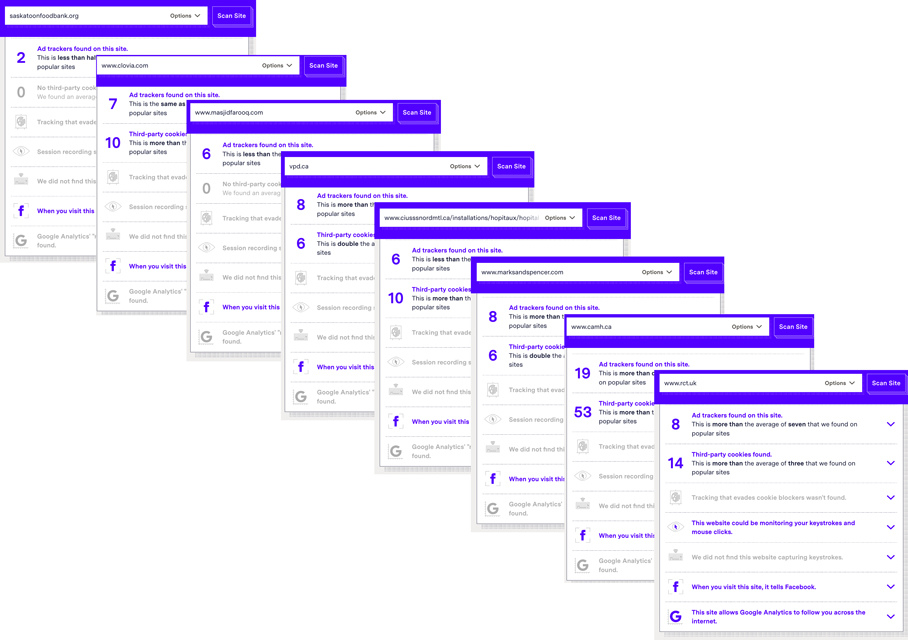How online advertisers identify their targets

Many gambling companies might be betting that their website users don’t wise up to being tracked — but investigative journalists have revealed that many gambling companies routinely identify their visitors to Facebook.
The same thing happens when people visit the website of organizations in many other fields.
It's easy to find websites that address the most intimate of matters using hidden Meta pixel trackers to collect and transmit information identifying the person’s interests, concerns, and location. No industry or sector is immune, and services that affect every aspect of live — from midwives to cemeteries, mental health facilities and hospitals to period trackers — and even Britain’s Royal Collection Trust — might be surprised to learn that they, too, are routinely identified to Facebook.
Increasing awareness about the presence of hidden trackers might alleviate some people's curiosity about why certain ads are served up to some viewers, but not others; but it does nothing to prevent the practice or information being collected and distributed.

By the time the website a person has called up comes into view, it’s already too late: The embedded code has collected and transmitted the unique identifier of the device being used, and often more data. That identifier is matched with other information from and about the person that's already been compiled by Facebook, making it easy to positively identify each website visitor — even if their website visit didn't involve providing personal or identifying information, the person doesn’t have a Facebook account, or they have a Facebook account but aren’t logged in.
Very few people — including lawmakers, academics, lawyers, and privacy officers — are aware of Meta pixels or their purpose, so they don’t know to look for them or realize the extent to which their passions, pursuits, and predilections are communicated to advertisers.
Although Meta pixels are easily discovered if you do know where to look, they are impossible to avoid or deactivate. And since they operate in secret — with no notice, no opportunity to consent or withhold consent, and no way to prevent or stop the tracking — website visitors are unaware of their presence or impact, or that their privacy is being violated.
Regulators are aware that many companies use Meta pixels and other tracking technologies, and understand the complex privacy implications; but many are chronically under-funded, making it necessary to be strategic in choosing which issues to pursue. The resulting trade in personal information and preferences is detrimental to individuals' privacy, but extremely valuable to facilitate commerce and the multi-billion-dollar data broker industry that leverages the data to know who to target with their sophisticated online marketing and advertising.